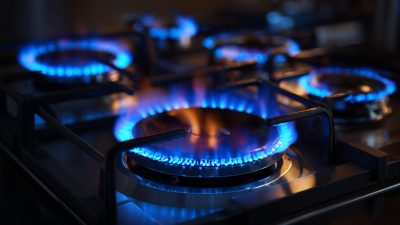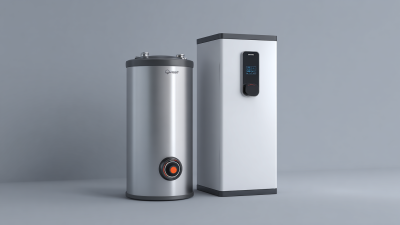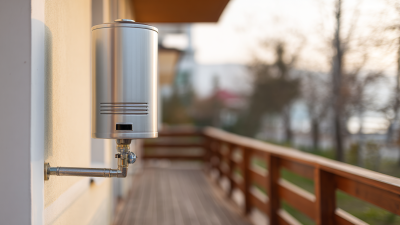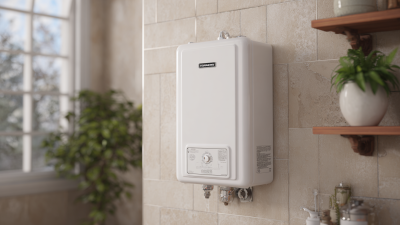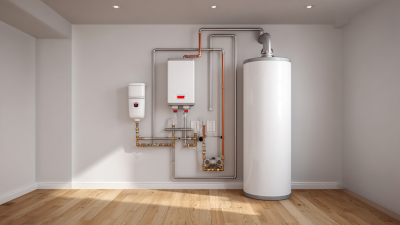
Choosing the right hot water heater for your home is a decision that can significantly impact your comfort, energy efficiency, and overall utility costs. With a variety of options available, understanding the benefits of each type is essential to making an informed choice. A well-selected hot water heater not only ensures a consistent supply of hot water for everyday tasks, like bathing, cooking, and cleaning, but also contributes to greater energy efficiency, potentially saving you money on your monthly bills. In this blog, we will explore key considerations for choosing the right hot water heater, including factors like capacity, energy source, and technology. We will also provide practical tips to help you evaluate your home's specific needs and make the best decision for your situation. Whether you're replacing an old unit or installing one for the first time, the right hot water heater can enhance your home's functionality and comfort for years to come.

When it comes to selecting a hot water heater for your home, understanding the different types available is crucial for optimizing efficiency and savings. There are primarily three types of hot water heaters: tankless, storage, and heat pump water heaters. According to the U.S. Department of Energy, tankless models can be up to 34% more energy-efficient than standard storage heaters, especially for homes that use 41 gallons or less of hot water daily. This efficiency not only reduces monthly energy bills but also provides a continuous supply of hot water.
Storage water heaters are the most common type, storing a significant amount of water and often providing lower upfront costs. However, the energy losses from standing water can lead to higher operational costs over time. On the other hand, heat pump water heaters can be an excellent choice in mild climates. The Energy Efficiency Ratio (EER) of these units can lead to savings of up to 60% on water heating costs, making them a smart investment when considering long-term energy savings. Choosing the right hot water heater tailored to your needs can significantly impact both your comfort and your budget.
When it comes to selecting a hot water heater for your home, considering key factors is crucial for ensuring comfort and efficiency. Hot water heaters come in various types, including tank, tankless, and solar options. Each type has its benefits, but you should choose one that meets your household needs, energy consumption, and space availability. For instance, if you have a larger family, a tank heater might be more suitable, while those with limited space may benefit from a tankless model.
Another critical factor to assess is energy efficiency. Look for units with higher efficiency ratings to reduce energy costs over time. Opting for a heater with an Energy Star certification can significantly benefit your long-term savings and environmental impact. Additionally, consider the fuel type that best aligns with your home, whether it be natural gas or electricity, as this can also affect your operating costs.
**Tips:** Always check the capacity and flow rate when choosing a hot water heater. A unit that matches your peak demand ensures you won't run out of hot water during busy times. Furthermore, adhere to the manufacturer's recommendations for maintenance; regular flushing and inspections can extend the life of your heater and maintain optimal performance.
Choosing the right hot water heater not only ensures a consistent supply of hot water but also plays a significant role in enhancing energy efficiency. An energy-efficient water heater uses less energy to heat water, which directly translates to lower utility bills. Models that carry the ENERGY STAR label are designed to meet strict efficiency guidelines set by the EPA, allowing homeowners to enjoy significant savings over time. By investing in modern technology, such as tankless or heat pump water heaters, you can reduce your energy consumption and decrease your carbon footprint.
Furthermore, prioritizing energy efficiency can yield long-term financial benefits. While there may be a higher upfront cost associated with buying a more efficient unit, the reduction in monthly energy bills often compensates for this initial expense. Homeowners can expect to save hundreds of dollars annually, depending on their hot water usage and the type of heater they choose. Additionally, many utilities offer rebates or incentives for selecting energy-efficient models, making them an even more attractive option for budget-conscious consumers.
Choosing the right hot water heater for your home is crucial, and one of the most significant factors to consider is its size and capacity. A correctly sized water heater ensures that your household has a continuous supply of hot water, eliminating frustrating moments during showers or dishwashing. If the heater is too small, it may not meet your family’s needs, leading to long waits for hot water to recover.
Tips: When selecting a water heater, assess the peak demand of your household — consider how many appliances will run simultaneously and whether your family takes showers at the same time. Utility companies often provide guidelines for sizing based on the number of people in your home and usage patterns.
Additionally, think about the type of hot water heater that suits your needs: tank-style units store a specific volume of water, while tankless systems heat water on demand. Tips: Evaluate your space and consider future needs when making your decision. For example, if you plan on expanding your family or adding more appliances, opt for a larger capacity tank or a tankless system for more flexibility in hot water availability.
Proper maintenance of your hot water heater is essential for extending its lifespan and ensuring efficient operation. One critical task often overlooked is flushing the water heater regularly. According to industry experts, sediment buildup can significantly hinder the performance of water heaters, causing them to work harder and reducing their efficiency by up to 25%. Flushing your water heater at least once a year can help remove this buildup, improving heat transfer and prolonging the unit's life.
In addition to flushing, homeowners should also pay attention to the dip tube. If the dip tube is defective, it can lead to lukewarm water and decreased efficiency. Home maintenance checklists frequently highlight the importance of inspecting this component, as replacing a faulty dip tube can restore optimal performance and prevent further issues. Regular maintenance tasks such as these not only boost the lifespan of your water heater but can also save homeowners substantial repair costs in the long run. Keeping up with these insights will not only keep your water heater running smoothly but also enhance your overall home maintenance strategy.
This bar chart illustrates various features of hot water heaters. Each feature is rated on a scale of 0 to 100, highlighting their significance in terms of energy efficiency, capacity, initial cost, maintenance cost, and longevity. Opting for the right hot water heater can lead to better efficiency and reduced overall costs.
